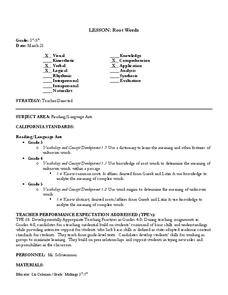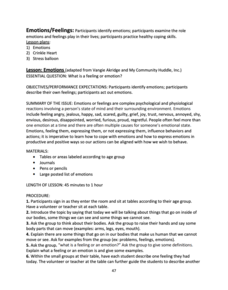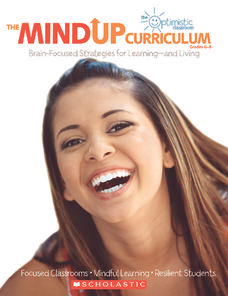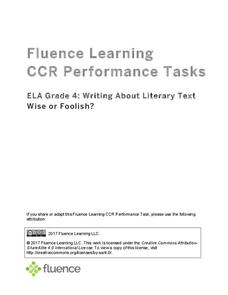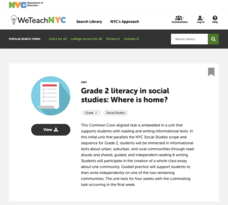Shmoop
ELA - Literacy.CCSS.ELA-Literacy.RST.9-10.6
Key to understanding scientific or technical texts is identifying the underlying question the author is attempting to answer. Provide your young scientists with an opportunity to practice identifying these questions and the procedures...
Shmoop
ELA.CCSS.ELA-Literacy.RI.9-10.8
Your learners need to develop skills to argue effectively, and this comes by understanding the traditions that make claims valid, and what detracts from their effectiveness. Although this resource does not give advice on how to...
Haut Gap Middle School
Root Words
Scholars demonstrate their knowledge of root words aqua and aud, and develop vocabulary skills by completing of a chart, handout, and worksheet using creative thinking skills, a dictionary, and a thesaurus.
Louisiana Department of Education
Hatchet
Accompany a novel study of Hatchet by Gary Paulson with a unit consisting of 16 lessons focused on physical and emotional survival. Reading the story along with a variety of informational texts, scholars compare and contrast reading...
Do2Learn
Respecting the Ideas of Others
Communicating clearly is one part of a successful conversation, but listening to others is just as important. Individuals with special needs plan calm responses and reactions to differing opinions with a collaborative activity.
Workforce Solutions
The Negotiations of Interviewing
Sometimes the interview process includes negotiating for what you want. Here's an activity that guides job seekers to achieve The Best Alternative to a Negotiated Agreement (BATNA). Participants take on the role of job seekers and...
Equality and Human Rights Commission
Learning area 2: Challenging Stereotypes and Discrimination
Six powerful and eyeopening lessons provide scholars with activities designed to challenge stereotypes and discrimination. The unit provides reading material with which pupils read and discuss. Grand conversations lead to physically...
Novelinks
Where the Red Fern Grows: Question Answer Response Strategy
What makes a good question? Middle schoolers explore the use of questioning through QAR, the question answer response strategy, while reading Where the Red Fern Grows. They learn about the four types of questions: right there, think...
K12 Reader
Using Prior Knowledge
Sometimes it's hard to relate to a new text. Teach kids to use their prior knowledge when reading something new with a comprehension exercise. A short passage tells them how to think of their brains like filing systems, and provides five...
Qrayon
Inkflow: Think Visually!
Save trees! Save graphite! Save ink! Go paperless! Make a list, mindmap, sketch an idea. Import, scale, rotate, and add text to images. Save content into books and share your creations. All this and more is yours with a free visual...
San Diego County District Attorney
Emotions/Feelings
Three lessons delve deep into the topic of feelings and the importance of expressing one's emotions. Through grand conversation, hands-on learning experiences, and reflective writing, scholars interpret the ups and downs of everyday...
Scholastic
Mindful Listening
Teach your middle schoolers to use their ears to their highest potential! Pupils practice active listening skills and reflect on how careful listening might prove to be important in and out of the classroom.
Happy Moose Apps
Bitsboard - Education, Games, and Flashcards for Learning Reading, Spelling, and more
Learn everything from sight words to French vocabulary with this versatile study app. While the material that comes pre-loaded on the app is mostly based on learning how to read and spell, the app has the potential to be useful for any...
Fluence Learning
Writing About Literary Text: Wise or Foolish?
A three-part assessment promotes reading comprehension skills. Class members read literary texts and take notes to discuss their findings, answer comprehension questions, write summaries, and complete charts.
University of Minnesota
Try Angle
Does practice make perfect or just improvement? Scholars practice drawing a triangle on an Etch-A-Sketch. They learn about the part of the brain that controls sensory-motor integration and apply that to an analysis question.
California Department of Education
Safe at Work
From minimum wage to minimizing injuries, young workers need to know their rights! The sixth and final lesson in a series of college and career readiness activities gets eighth graders thinking about safety and labor laws.
American Press Institute
In the Newsroom: The Fairness Formula
Reporting the news is easy, right? Think again! Show young scholars the difficult choices journalists make every day through a lesson that includes reading, writing, and discussion elements. Individuals compare the language and sources...
New York City Department of Education
Grade 2 Literacy in Social Studies: Where Is Home?
What makes a community? How communities differ? Young scholars research different types of communities, small rural towns, and large crowded cities. They respond to writing prompts, and write essays in groups to understand the wide...
Curated OER
Fast Food Nation: Study Questions
Are you introducing your class to the horrors of eating unhealthy? This lesson contains 24 reading comprehension questions relating to the non-fiction book. Readers are encouraged to copy these and answer them in their reading...
EngageNY
Framing Lyddie’s Decision and Practicing Evidence Based Claims
Scholars grapple with whether the title character of Katherine Paterson's novel, Lyddie, should sign a petition about working conditions at the factory. They engage in close reading and discussion before adding their thinking about the...
Curated OER
Inventive Thinking - Future Inventions
Students create marketing campaigns. In this technology skills lesson, students keep a log as they build prototypes of their inventions. Students then script and record video commercials to sell the prototypes.
Curated OER
Through Many Lenses: How are Countries Depicted by the Media?
If you plan to utilize the ABC miniseries, "The Path to 9/11" in your classroom, consider incorporating media literacy and research skills. After (or while) learners view the series, they discuss ways information can differ from source...
Curated OER
Lead Up Skills for Corner Ball
This instructional activity/drill is just what it says - lead up skills to corner ball. Players practice tossing the ball and catching the ball. There is no running with the ball, so players need to think about stopping and being in one...
Curated OER
Making Predictions:
Pupils of all ages practice making predictions about what will happen next in a fairy tale as the teacher reads it aloud. They demonstrate how to support their predictions with information and facts from the story.




